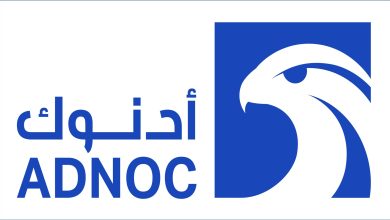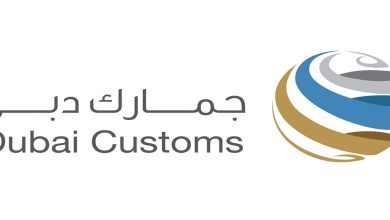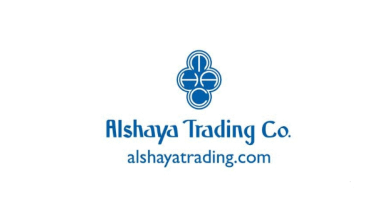Food Safety and Quality Officer (Food Systems Coordinator) SC10, Regional Bureau Nairobi

|
JOB TITLE: |
Food Safety and Quality Officer (Food Systems Coordinator) |
|
TYPE OF CONTRACT: |
SC 10 |
|
UNIT/DIVISION: |
Food Safety and Quality |
|
DUTY STATION (City, Country): |
Nairobi |
|
DURATION: |
12 months |
BACKGROUND AND PURPOSE OF THE ASSIGNMENT:
WFP’s Strategic Plan (2022-2027) recognizes the pivotal role the organization can and should play in the global discussion on food systems to ensure that safe and healthy diets are available to all, and that the 2030 Agenda and Sustainable Development Goals can be achieved. Food systems influence diets and are complex webs of interconnected activities and actors involving food production, processing/value addition, marketing, supply, and consumption. Food systems in the East Africa/Horn of Africa region are stretched and have shown themselves to be highly vulnerable to shocks.
The World Food Programme (WFP) procures food items to support the agency’s global fight against hunger. These procurement activities include both direct (from Producers) and indirect (through Traders/Intermediaries) purchases of both raw and processed food items, such as Specialised Nutritious Foods (SNFs). In 2019 the Local and Regional Food Procurement Policy (LRFPP) was published with the objective of ensuring that WFP’s procurement activities not only meet the supply needs of the agency but also contribute more broadly to the elimination of hunger by supporting local food producers and the development of sustainable food systems in vulnerable regions.
Aflatoxin contamination has remained one of the challenges while sourcing food within the region, especially from the small holder farmers and farmer cooperatives. Contamination of agricultural commodities, including maize, milk, groundnuts, cassava, and cottonseed with aflatoxin mold poses a serious threat to human and animal health. Aflatoxin contamination in food and feed continues to impede trade, translating to significant financial losses for the agriculture sector. This also undermines the livelihoods and well-being of millions of households who depend on agriculture for their livelihoods. Persistent and chronic aflatoxin exposure has been shown to be widely prevalent throughout the Eastern Africa countries with elevated serums aflatoxin levels demonstrated across all geographical regions, within all socioeconomic and demographic groups, and among people of all ages.
RBN would like to establish a harmonized approach by WFP’s Eastern Africa countries in tackling the Aflatoxins risk, to achieve synergy as well as leverage available resources, partnerships, expertise, experiences and lessons learnt from existing and past interventions. In addition to supporting the implementation of the LRFPP, there is envisaged need to integrate specifically Aflatoxin control and management in the affected Countries’ priorities e.g Small Holder Farmers capacity strengthening and market linkages, food fortification, School Based Program etc.
WFP East Africa regional office (RBN) is currently also defining its food systems domains for policy and programmatic priorities, partnership engagement strategies, and related activities and interventions. RBN Food Safety and Quality Unit is a key player in this and therefore requires additional support and expertise to establish the technical framework as part of its support and guidance to RBN Units and Country Offices in the region. Reporting to the Regional Food Safety and Quality Assurance Officer and working in close collaboration with RBN Procurement, Programme, Innovations and Country Office focal points, the profile will be responsible for the following:
ACCOUNTABILITIES/RESPONSIBILITIES:
1. Guided by the WFP corporate LRFPP policy and other regional operational requirements, develop a regional aflatoxins control and management strategy and implementation plan with clear targets/KPIs, risks analysis, capacity requirements and strategic partnerships opportunities.
2. Take stock of past and ongoing projects/ programs, technological innovations, partnerships, around aflatoxins control and management in the region, their status, successes, lessons learnt, challenges and potential for scale up.
3. Identify and engage priority Countries for plan implementation, aligning with CO plans and priorities
4. Lead the development and deployment of tools and other materials to assist with implementation of aflatoxins control and management interventions and support as required with VCA related activities, including discussions with VC actors, public bodies, and the private sector.
5. Develop resource requirements to support the roll out of the regional strategy implementation plan and manage them efficiently
6. Collaborate closely with Procurement, Programme, Logistics and other relevant internal parties to ensure an integrated approach and understanding in the formulation of any plans, progress, priorities relating to aflatoxins control and management.
7. Develop relationships within WFP to share knowledge, influence, build capacity and advocate for policies to promote aflatoxins risk mitigation and support fundraising initiatives
8. Ensure that a Food Systems perspective is considered in FSQ decisions and RB Food Systems initiatives are reflected in FSQ plans and activities
9. In coordination with the M&E team, develop a monitoring and evaluation framework for the regional aflatoxins control and management strategy implementation plan.
10. Support the Regional Bureau and Country Office teams in gathering relevant data and evidence on activities and impact.
11. Others as required
DELIVERABLES AT THE END OF THE CONTRACT:
QUALIFICATIONS & EXPERIENCE REQUIRED:
Education:
Advanced University degree in Agriculture Management, Development Studies, Project Planning and management or related fields. A First University degree with additional relevant years of related work experience in Food Science and Technology, Agricultural Economics, Agribusiness, Value Chain/ Market Development or related fields. Additional professional courses in related fields are also a plus
Experience:
Minimum 10 years of meaningful and progressive professional experience in food trade business, Regional bodies in the grain value chain, Agribusiness, and/or value chain/ market development. Experience working in the EAC region and/or a multicultural and fast-paced environment is an added value.
Knowledge & Skills:
- Good strategic understanding of Food Systems and Food Value Chains in the region
- Good understanding and expertise in aflatoxins control as a food safety risk, regional interventions and opportunities
- Excellent project management and analytical skills.
- Strong network of relevant contacts (regional bodies working on related initiatives within the grain value chain, private sector, academia, government authorities etc.)
- Excellent communication and engagement skills (ability to understand and be understood, diplomatic skills, writing skills)
- Strong interpersonal and coordination skills, ability to work with a wide range of stakeholders from diverse backgrounds externally and internally.
- Capacity to act upon problems (intellectual / problem solving and judgement skills)
- Ability to pro-actively prioritize, plan, organize, coordinate, monitor, excellently report and follow up
- Ability to organize work and deliver results with minimal supervision, under time pressure and with strict deadlines
- Understanding of WFP operations in the region is an advantage.
Languages:
Fluency (level C) in English language. Intermediate knowledge (level B) of a second official UN language: Arabic, Chinese, French, Russian, Spanish, and/or WFP’s working language, Portuguese is an added advantage
Deadline: 12th June 2022




